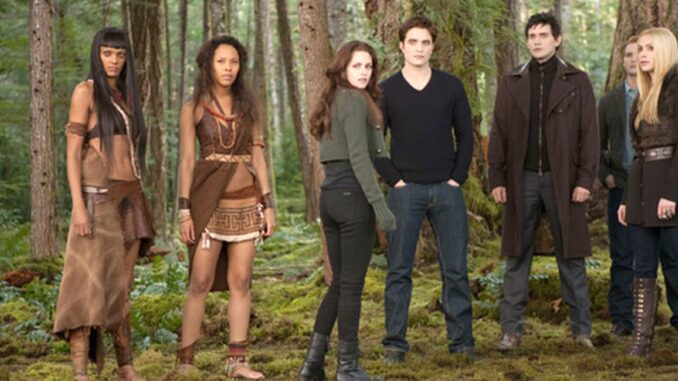
The Enduring Glitter of Scorn: Why Robert Pattinson Pushes Back, and Why Twilight Still Bears the Blame
The image is indelible: a young man, impossibly handsome, skin sparkling like a disco ball under the sun, caught in the throes of a tortured, immortal love. Robert Pattinson, as Edward Cullen, became a global phenomenon, a heartthrob whose face adorned bedroom walls and magazine covers for half a decade. Yet, nearly fifteen years after the first Twilight film, Pattinson’s recent resurgence, culminating in his critically acclaimed turn as Batman, has brought with it a renewed, almost exasperated, pushback against the shadow of his glittering past. Why, even now, does Pattinson feel the need to subtly, and sometimes not so subtly, distance himself, and why do people still cling so vehemently to blaming Twilight?
Pattinson’s "push back" isn't a sudden, petulant outburst; it's a meticulously crafted artistic evolution, a deliberate immersion into the murky, unconventional waters of independent cinema. After the colossal success of Twilight, where he was reduced, often unfairly, to a single, brooding archetype, Pattinson plunged headfirst into a cinematic abyss of bizarre, challenging roles. From the deranged, mumbling lighthouse keeper in The Lighthouse, his face obscured by a grotesque beard and an accent thicker than pea soup, to the small-time, desperate bank robber in Good Time, his eyes perpetually wide with a hunted paranoia, Pattinson meticulously stripped away every vestige of Edward Cullen. He sought out roles that demanded physical transformation, psychological contortion, and a complete subversion of his established teen idol persona. His journey through films like Cosmopolis, The Rover, and High Life wasn’t just about proving his acting chops; it was an act of cinematic exorcism, a public declaration that he was more than the sum of a million teen fantasies. His self-deprecating humor in interviews, often poking fun at the very absurdity of his Twilight fame, serves as another layer of this pushback – a preemptive strike against those who might still chain him to the past.
But why the persistence of the blame? Why, when other actors from massively successful, critically panned franchises have moved on, does Twilight remain such a convenient cultural whipping boy? The reasons are multifaceted, woven into the fabric of pop culture, gender dynamics, and our collective anxieties about "guilty pleasures."
Firstly, there's the initial critical reception. Twilight was almost universally derided by critics for its perceived wooden acting, clunky dialogue, and a storyline that many deemed problematic in its romanticization of an unhealthy, possessive relationship. This critical consensus, amplified by online forums and cynical memes, calcified into an unshakeable truth: Twilight was "bad" art. And once a cultural product is branded as such, it's remarkably difficult to scrub away the stigma. It became a shorthand for everything perceived as saccharine, illogical, or poorly executed in popular cinema, an easy target for intellectual snobbery.
Secondly, and perhaps more profoundly, the enduring blame stems from a deeply ingrained, often gendered, dismissal of anything primarily consumed by teenage girls. Twilight's core audience was young women, and sadly, their passions are frequently trivialized and mocked. The sheer intensity of the fandom, the fervent devotion to Team Edward or Team Jacob, was seen not as genuine enthusiasm, but as a symptom of irrational, adolescent hysteria. This underlying current of condescension allowed critics and casual observers alike to write off the entire phenomenon as frivolous, unworthy of serious consideration, and thus, perpetually "blame-worthy." It’s a convenient way to elevate one's own perceived taste by deriding something so many others openly embraced.
Finally, there’s the sheer cultural ubiquity of Twilight. It wasn't just a film series; it was a phenomenon that permeated fashion, music, and social media. When something becomes that omnipresent, it inevitably generates a backlash. People grew tired of the glitter, the angst, the incessant marketing. Blaming Twilight became a way to articulate a collective exhaustion with its dominance, a therapeutic release of pop culture fatigue. It also became an easy touchstone for a certain brand of ironic nostalgia – something people loved to hate, or hated to love, and thus, something they never truly let go of.
Robert Pattinson, through his deliberate and compelling career choices, has largely succeeded in shedding the glittery skin of Edward Cullen. His nuanced performances and the praise they've garnered have forced a re-evaluation, not just of him as an actor, but perhaps implicitly, of the very nature of our cultural judgment. Yet, the ghost of Twilight lingers, a testament to how deeply cultural narratives can embed themselves. It serves as a reminder that while individual artists can push back and redefine their legacies, the collective blame for certain pop culture phenomena can persist, fueled by critical dogma, gender bias, and the enduring human need to categorize, praise, and, perhaps most vehemently, to scorn.
